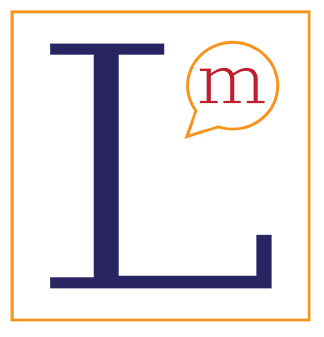Learning a Secong Language: Business or Informal? What language should we learn?

Should we prioritize specific aspects of a language when learning a second language?
Business jargon, industry-specific terminology, or colloquial expressions – which path should we tread?
Often, learners of a second language find themselves straying into language learning misconceptions.
Students dedicated to mastering a second language and companies investing in language courses for their staff can inadvertently blur the line between the language they aspire to acquire and the one they actually learn.
Frustration is a natural consequence when we want to discuss intricate subjects in a new language without laying a solid foundation. In such cases, diving headfirst into the deep end is almost a guarantee of subpar results and mounting discouragement.
At its core, language serves the primary purpose of communication, be it a first language or a second. Therefore, the focus of language acquisition should remain centered on this fundamental principle.

The Language of Business
Not too long ago, a friend shared his experience with French language training, a tale that I found entertaining and relatable.
He joined his country’s Department of Foreign Affairs after completing his university studies. As part of their comprehensive training program, he and his colleagues were enrolled in an intensive French course in south France.
Over two weeks, they dedicated five to eight hours each day to studying French. At the end of this rigorous training, the students could address diplomats with impeccable courtesy and navigate the intricacies of diplomatic language.
They became proficient in composing “official” written correspondences, employing phrases such as “Je vous prie d’agréer, Monsieur / Madame, l’expression de mon profond respect” (Please accept, Sir/Madam, the expression of my most profound respect).
However, the irony lay that the students struggled to read a menu or confidently order coffee at a local café even after these intensive two weeks.
Upon hearing this story, my friend admitted to having forgotten much of the French he’d learned, still incapable of ordering a coffee in French.

Realistic Expectations and Objectives
When embarking on a language-learning journey, whether within a classroom or through self-guided study, it’s crucial to weigh long-term objectives while keeping the primary goal in sight: to become proficient in communicating in a second language.
“But my objective is to master the industry-specific business language!”
And indeed, this is a valid aspiration. However, complex industry jargon and phrasing bear little relevance if one cannot engage in a basic conversation or extend a courteous greeting.
To foster sustainable language acquisition, students must learn material that aligns with their daily needs and potential usage. While language courses can certainly incorporate sector-specific vocabulary and terminology, these should serve as supplementary elements to a curriculum that first establishes the essential language skills needed for comfortable communication.

What Should We Learn?
Language acquisition follows a logical progression in a classroom setting or during self-study.
For instance, when entering an environment where the native language is unfamiliar, one needs to grasp rudimentary language for survival – ordering meals, seeking directions, introducing oneself, scheduling appointments, or making necessary phone calls. While the desire to discuss advanced topics is natural, it’s vital to acknowledge that this comes with time.
In language acquisition, comprehension typically precedes speech fluency. Even if an individual can comprehend complex grammatical structures, they often start with the ability to communicate basic phrases needed for everyday interactions. Initially, it might be easier to answer “yes/no” questions than to formulate them.
As proficiency grows, so does the ability to express oneself effectively. Vocabulary and sentence structures used for communication are interconnected, and this predictable progression allows us to anticipate the order in which students will acquire grammar and vocabulary.

Creating Space for Language
Efficiently accommodating a new language into one’s life becomes challenging if the language learned doesn’t serve a practical purpose in daily activities.
For language acquisition to be effective, students must immerse themselves in relevant materials. Learning must be practical and applicable to daily life, not merely aimed at memorization for short-term gains. Intensive two-week courses may yield rapid memorization, but long-term retention and practical use remain elusive without a solid foundation in the language.
As learners, setting achievable objectives that make space for sustainable, long-term language acquisition is crucial. As educators, we must tailor content to students’ needs and proficiency levels.
Areas of Focus for Language Learners:
- Prioritize mastering language elements necessary for daily use.
- Engage in exercises that expose you to authentic spoken language.
- Keep your ultimate objective in mind: effective communication.
- Dedicate time in your daily routine to incorporate the new language.
- Approach language acquisition as a long-term commitment, understanding that consistency is key.
- As you gain proficiency in general language skills, integrate language elements relevant to your specific background.

About the Author
My Linguistics specializes in developing language acquisition methodologies for educators and learners. Our language training center in Geneva, Switzerland, is a practical testing ground for our techniques.
We are dedicated to assisting individuals in unlocking the power of language and communication, offering the necessary resources and support to attain fluency.
Contact us for more insights into our approach and language acquisition methods.
My Linguistics method: https://mylinguistics.com/method
My Linguistics school: https://mylinguistics.com/
The article
Language learning is shrouded in a fog of myths or so-called “universal truths,” often stemming from misconstrued facts. These myths persist as commonly accepted notions.
Establishing practical expectations and dispelling these prevalent misconceptions is essential for laying a solid foundation when venturing into learning a second or even a third language.
This series endeavors to unravel these myths, trace their origins, and determine their validity. We hope to inspire individuals to embark on the rewarding journey of acquiring another language.



